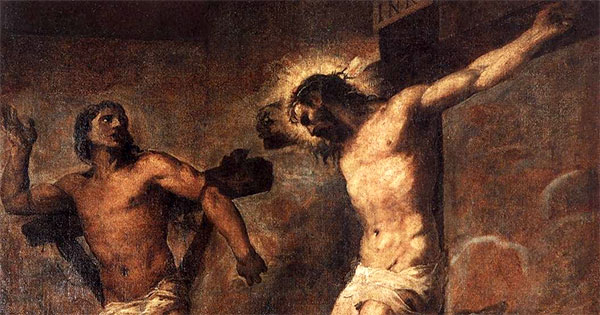Then Jesus, crying with a loud voice said, “Father, into your hands I commend my spirit” (Luke 23:46).
These words of Jesus in Luke’s Gospel are equivalent to Jesus’s words in John’s Gospel, “It is finished.” The Gospels of Mark and Matthew include only one saying of Jesus from the cross: His cry of abandonment, “My God, my God, why have you forsaken me?” The other six sayings of Jesus are found in Luke and John.
In Mark and Matthew the emphasis is on Jesus as a participant in our suffering. Jesus shares our pain and loss. Jesus knows what it is like to feel forsaken, even by God. Jesus, for the most part, is a passive victim. In Luke and John, Jesus is still a victim, but he is not passive. There is no sense of Jesus feeling forsaken in Luke or John. In Luke’s portrait, Jesus dies as a courageous and faithful martyr. We need both portraits. We need to know that God suffers with us, that God identifies with our experiences of forsakenness and feelings of abandonment. But we also need to know that neither Jesus nor God was surprised by the crucifixion, and that God incorporated Jesus’s death into God’s redemptive plan. In Luke, Jesus is the overcoming victim, offering his life sacrificially.
By sacrifice I do not mean that Jesus died to appease God’s wrath, or satisfy God’s justice, or pay some debt owed to God. I do not mean that Jesus bore a penalty imposed by God. I have said before Jesus did not die to save us from God. We do not need to be saved from God. We… [Read more…] about Was Jesus' death necessary for our salvation? (the seventh saying from the cross)








